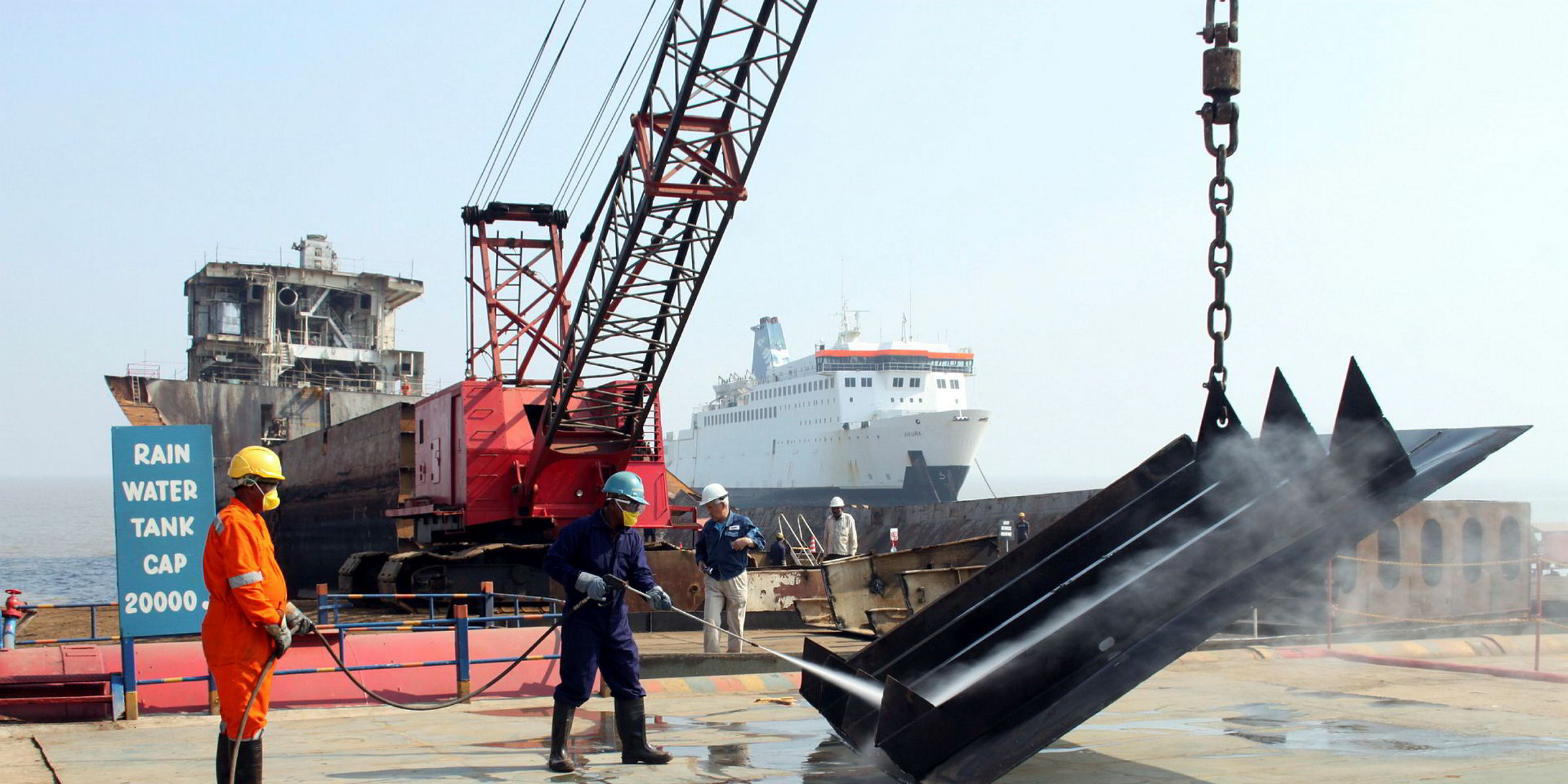Three Dutch judges are set to rule next Thursday on the charges against a trio of Seatrade shipping executives charged with breaking European Union (EU) waste export laws.
As TradeWinds reported earlier, Dutch prosecutors have called for a partly suspended jail sentence of up to six months as well as a fine representing the profit the company made from selling the ships to shipbreaking yards in India, Bangladesh and Turkey rather than approved facilities.
Under EU waste shipment regulations, the vessels should have been dismantled in an OECD country, allege the prosecutors, who claim the vessels were sold for profit in the full knowledge of safety and environmental problems at Asian beaching yards.
The case — heard in February — is the first real test of whether a criminal prosecution can be brought against operators exporting ships as waste from Europe to the third world. It could open the door to any number of similar prosecutions.
Sales go back to 2012
The four Seatrade demolition sales in question took place in 2012 and involved the company’s so-called Spring-class reefer ships — the 461,816-cbf Spring Bear, Spring Bob, Spring Panda and Spring Deli (all built 1984).
Since that time, hundreds of vessels have sailed from Europe for demolition in non-OECD countries.
The judges will have to consider whether the vessels, which Seatrade claims were seaworthy, carrying cargo and trading when they left Europe, could actually be recognised as waste under EU law.
Another factor in Seatrade’s defence is the prosecution’s emphasis on the use of beaching yards as a factor not specified in the EU waste law.
Seatrade, which has strongly denied the criminal charges brought against its executives, has come out and said it believes the EU waste export laws and its focus on individual companies and executives are unfair.
The company said regional laws are to the detriment of safe and environmentally sound recycling in the shipping industry.
It added that the upcoming European Ship Recycling Regulation, which restricts the demolition of European-flag ships to approved yards, runs the risk of leaving the shipping industry dangerously short of demolition capacity.
Hong Kong Convention
Seatrade believes the shipping industry would be best served by following the Hong Kong International Convention for the Safe and Environmentally Sound Recycling of Ships rather than the EU waste export regulation.
“Once the convention has come into force, ships registered in signatory countries may only be recycled at facilities in countries that have ratified the convention, either in Asia, Europe and Turkey, where we believe it is critical that ship recycling is regulated by such international laws,” Seatrade said in a statement to TradeWinds.
“Many IMO member states, including the Dutch government, have still not ratified this important convention.”
It said, since 2012, many shipbreaking yards had raised their standards to that of the Hong Kong Convention.
“An increasing number of yards in Asia and in Turkey, including the yard where two of our Spring-class vessels have been recycled, now have been certified according to the Hong Kong Convention, with other recycling facilities following,” Seatrade said.



